No one likes to see precious garden vegetables eaten away by bugs. What if you could keep those damaging insects away from your edibles without using insecticides? All it takes is a few helpful plants, better known as companion plants.
Companion plants help keep unwanted bugs away, but they also attract pollinators for many vegetables, like cucumbers, melons, squash and tomatoes. You may be surprised to discover that you are probably already familiar with many of these helpful plants.
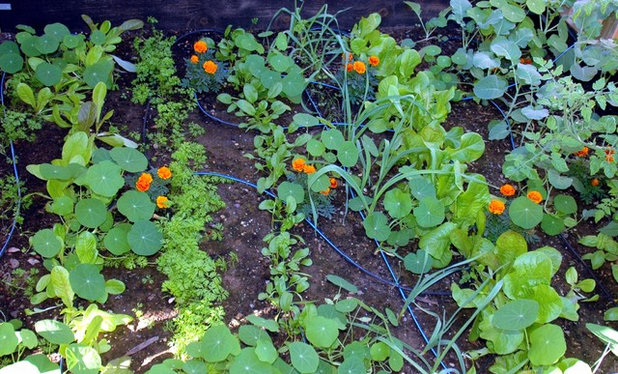
Noelle Johnson Landscape Consulting
How Companion Plants WorkThere are many companion plants that help repel damaging insects. You may wonder, how do they do that?
Insects are often guided to plants by their scent. Aromatic plants such as
marigolds, garlic,
nasturtiums and
basil will help keep bad bugs away from your vegetable garden.
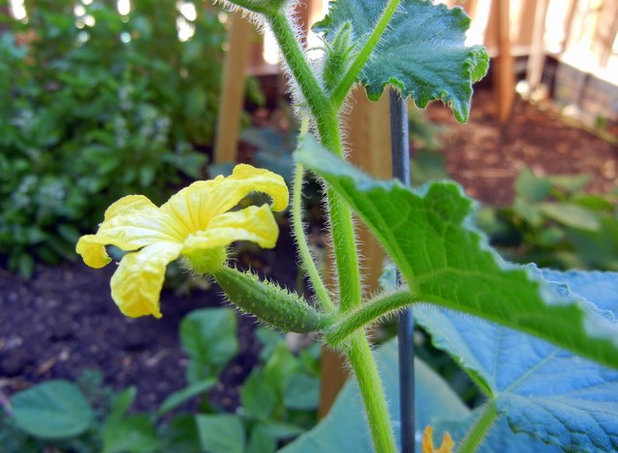
Noelle Johnson Landscape Consulting
Other ways that companion plants help in the vegetable garden is by attracting beneficial insects, which help pollinate flowering vegetables. Some companion plants also attract good bugs that will eat the unwanted bugs.
Shown: Female cucumber flower
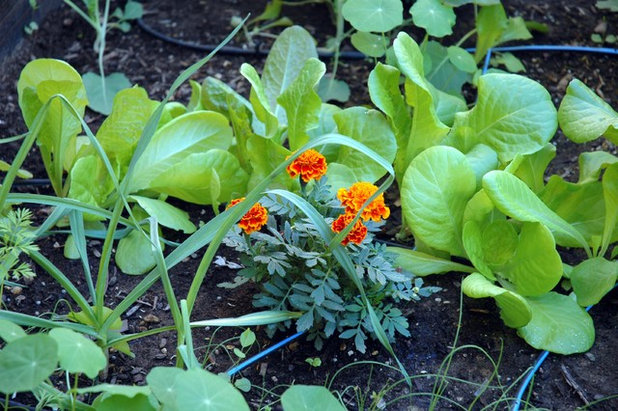
Noelle Johnson Landscape Consulting
Companion plants work best when planted alongside vegetables. You can plant them between rows of vegetables, or you can simply intersperse them throughout the growing vegetables. Most companion plants are easily grown from seed and can be planted at the same time as your vegetable seeds.
Shown: Marigolds, garlic and nasturtiums planted next to leaf lettuce
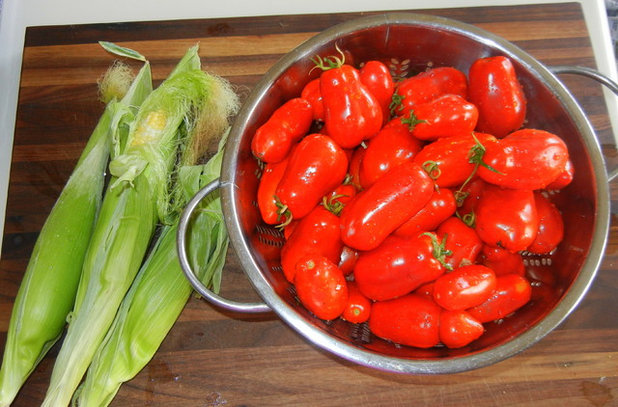
Noelle Johnson Landscape Consulting
Cucumbers, squash and tomatoes are just a few plants in the vegetable garden that need to have their flowers pollinated to produce delicious vegetables for your table. Flowering companion plants like alyssum and
bachelor's button add beauty to the garden while attracting pollinators.
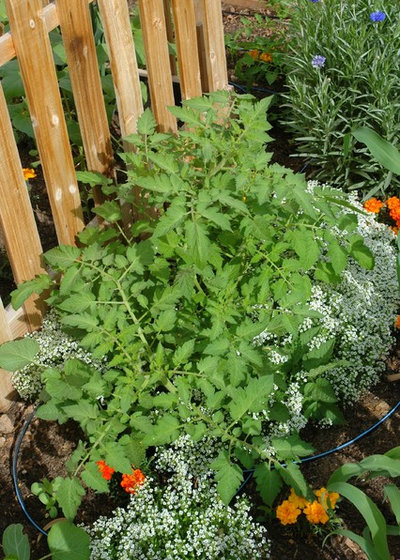
Noelle Johnson Landscape Consulting
Popular Companion Plants Companion plants aren’t fussy and are easy to grow. Here are a few that can help out in your vegetable garden.
Repel unwanted bugs: Basil, garlic, geraniums, marigolds, lavender, nasturtiums, petunias, rosemary, sage and thyme
Attract beneficial insects: Alyssum, bachelor’s button, cosmos and chamomile
Shown: Alyssum, bachelor’s button and marigolds planted alongside a young tomato plant
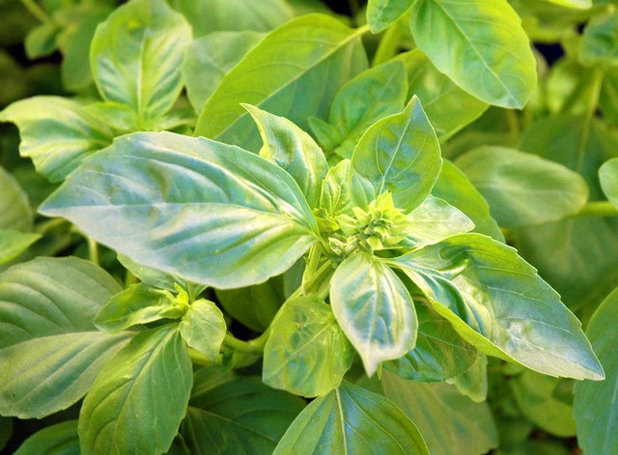
Noelle Johnson Landscape Consulting
Basil masks the alluring scent of your vegetable plants, keeping bad bugs away. Here are two other reasons to grow basil in your garden:
- Basil is very easy to grow from seed or seedlings once the danger of frost has passed. You can also grow it in containers.
- It's hard to beat the fresh taste of basil in a favorite Italian dish.
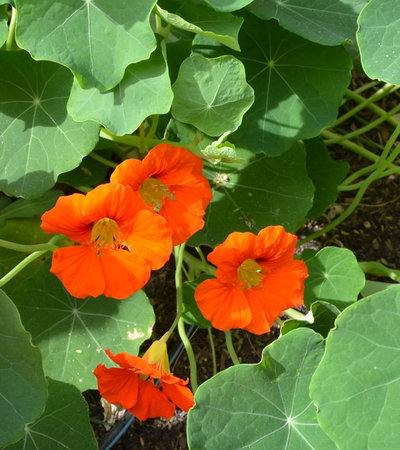
Noelle Johnson Landscape Consulting
Nasturtiums are great companion plants because bugs hate their peppery scent. They not only repel bugs you don’t want around, they also
attract pollinators. But there are other benefits of adding nasturtiums to your vegetable garden:
• Every part of nasturtiums is edible, and they add a delicious, peppery taste to salads.
• They are easy to grow from seed.
• The flowers add beauty to any vegetable garden.
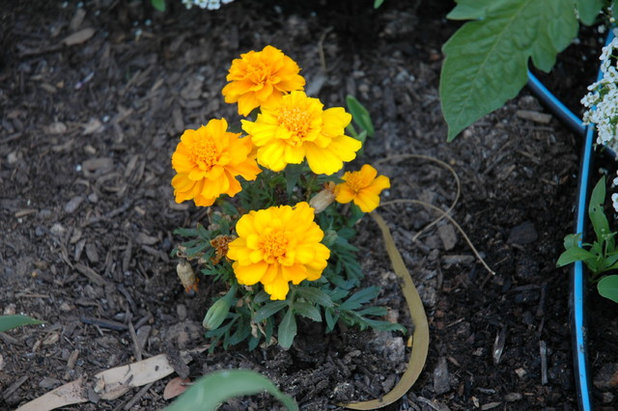
Noelle Johnson Landscape Consulting
Marigolds add a bright and sunny spot of color. Pest bugs simply hate them and stay away. Purchase them in six-packs or start them from seed.
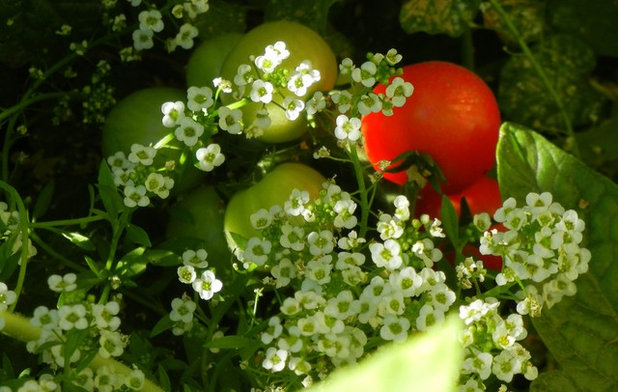
Noelle Johnson Landscape Consulting
Alyssum does double duty as a companion plant. Its flowers attract pollinators as well as good bugs that feed upon the unwanted ones. They have other benefits too:
- The flowers have a sweet fragrance.
- You can buy them in six-packs from the nursery or simply scatter seeds throughout the garden.
More: What to Do in Your Garden Now





